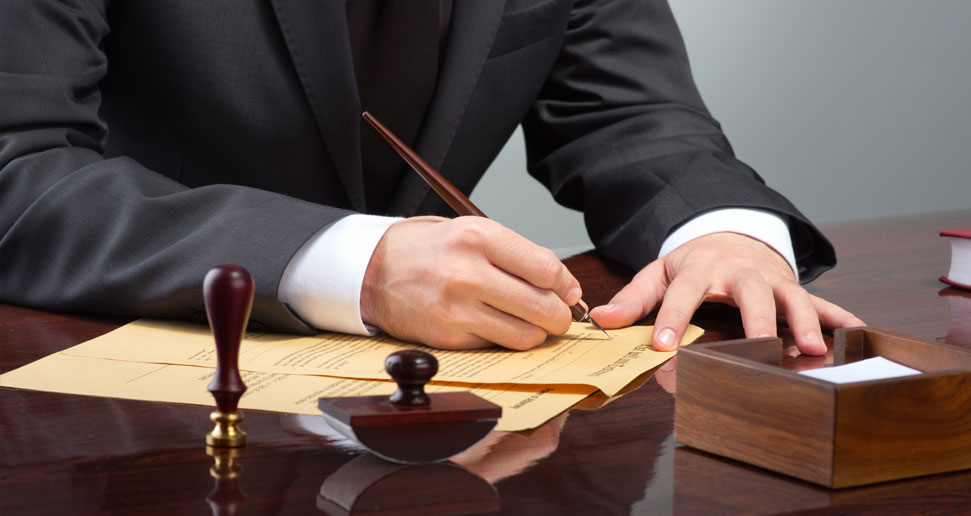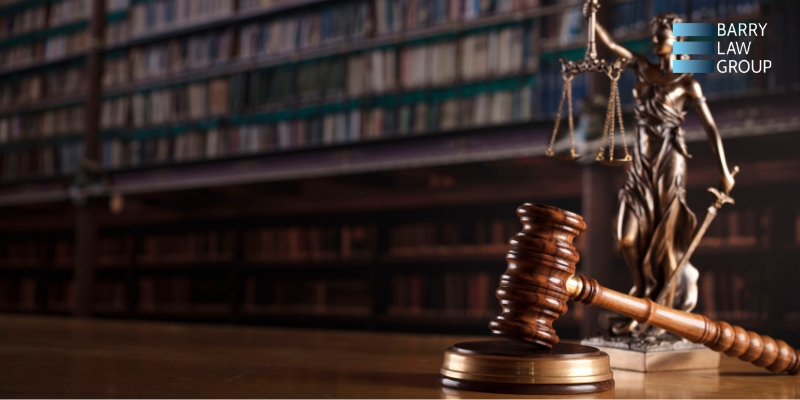Encino Trust Litigation Lawyer


Trust Litigation Attorney in Encino, CA
People create trusts for many reasons – to avoid probate; to control the disposition of their assets upon incapacity or death; to provide for orderly management or administration of their assets; to protect assets from creditors; for tax purposes; and for many other reasons. Trust litigation arises when there is a dispute over the trust and are more commonplace than most people realize. Barry Law Group has decades of expertise in prosecuting and defending disputes in trust litigation.
What is Trust Litigation?
Common trust litigation issues arise when there is a dispute over the validity or meaning of a trust instrument, when a trustor, beneficiary, creditor or other person interested in the trust claims that the trustee of a trust has breached the terms of the trust or fiduciary duties, or engaged in other malfeasance, where a creditor seeks to enforce a debt against the trust estate.
More specifically, trust litigation can arise when an interested person (such as, an heir, beneficiary or disinherited person or charity, or creditor) alleges that the decedent lacked the requisite mental capacity to create a trust, that the trust was not properly executed, that the trust was the product of undue influence, duress or fraud, or that trustee has improperly managed the trust or engaged in conduct that constitutes a breach of fiduciary duty to the beneficiaries or creditors. A trustee must follow the terms of the trust and must generally adhere to fiduciary duties, which include the duty of loyalty, the duty of impartiality when there are multiple beneficiaries, the duty to avoid conflicts of interest, the duty to protect and preserve trust assets, the duty to make trust property productive, the duty to keep trust property separate from other assets and the duty to enforce and defend claims of the trust. A trustee must also generally keep the beneficiaries informed of the trustee’s administration of the trust.
Not all petitions filed with the court relating to a trust are contested. Sometimes, a petition should or must be filed to modify a trust or bring assets outside of the trust into the trust estate (i.e., a “Heggstad” petition under Probate Code sections 850, et seq.) Often, the relief sought by certain trust petitions is not contested but becomes a necessary part of trust administration. You can read more about the process of trust administration under the Practice Areas tab, “Trust Administration.”
On the other hand, contested petitions are those where two or more parties disagree about the validity of the trust or how it should be administered. Contested petitions include:
- Trust Contests
- Claims of Breach of Trust and/or Breach of Fiduciary Duty
- Contested Accountings
- Suspension or Removal of a Trustee
- Petitions to Instruct a Trustee to Act or Not Act
- Recovery of Assets Belonging to a Trust (Probate Code § 850, et seq.)

Understanding Trust Litigation
Trust litigation is complex due to the intersection of various statutory and common laws that may be applied to resolve the dispute, either by settlement or trial. A good trust litigation attorney will be well-versed in probate and trust law as found in the Probate Code and case law, the California Code of Civil Procedure, real estate law, business law and trust administration. Importantly, a trust litigator needs to know how to use the tools of investigation, discovery, motions, probate court petitions, oral argument and trial practice to effectively represent a client. Barry Law Group has this expertise.
Common steps in a trust litigation matter include:
- Pre-litigation consultation and strategy: It is important that the client and attorney discuss the background and issues presented in any legal matter before proceeding to litigation. An attorney should attempt to understand a client’s goals, expectations and personal circumstances that may impact strategic decisions, effective representation and the outcome of the dispute. In some cases, it may be desirable to attempt a resolution before litigation is commenced, either through informal discussions between the parties and their attorneys, mediation or other means. Litigation can be uncertain, time-consuming, stressful and emotionally and financially draining. Barry Law Group will often encourage early resolution of disputes before resorting to litigation.
- Filing a Petition: Most trust litigation disputes are filed in probate court. In probate court, the initiating document is called a, “petition,” which is similar to a “complaint,” in civil court. The petition will set forth the trust or trusts in dispute, the interested parties, the allegations forming the basis for the dispute, and requests for relief. In probate court, a petition is verified (signed, under penalty of perjury) by the petitioner. Upon filing, the probate court will assign the petition a case number and an initial hearing date. Then, the petition is served, usually by mail or in person, on the parties who are interested in the dispute, such as trust beneficiaries or the trustee.
- An Objection or Response: In a disputed trust litigation case, a party who is interested in the trust is entitled to file a response or objection to the petition. For instance, where a beneficiary files a petition against a trustee for an accounting and/or breach of fiduciary duty, the trustee will commonly respond with a response or objection to the petition. The objection or response may take varying form, but it typically denies that some or all of the petitioner’s allegations are true and asks the court to deny the requests for relief in the petition. When an objection or response is filed, the case is considered “contested” and “at issue.” If no response or objection is filed, then the court may grant the petition as “uncontested.” Before doing so, however, the court will want to ensure that all parties who have an interest in the trust and the requests for relief in the petition have been properly notified of the petition.
- Investigation and Discovery: Investigation of facts supporting or refuting the allegations in a trust petition may occur before or during the litigation. A pre-litigation investigation may include interviews of potential witnesses, requesting and gathering pertinent documents or hiring a private investigator. After litigation is commenced, and the case is contested and at issue, the parties may proceed to conduct investigation and discovery. Discovery is the process of obtaining facts, witnesses and documents that might be used as evidence at trial. Discovery takes the form of written questions and requests for documents to parties in the litigation, subpoenas to third parties who might provide testimony or documents regarding the subject matter of the litigation and depositions of parties and third-party witnesses. Many trust litigation cases also require the testimony of expert witnesses. These expert witnesses may provide medical opinions (such as, relating to the competency of a deceased trustor), forensic accounting opinions (such as, relating to the use or misuse of trust funds) or opinions regarding the standards for trustees, to name a few. An experienced trust litigator, like the attorneys at Barry Law Group, will know how and when to use the tools of investigation and discovery to create a strong case for a client.
- Settlement: Most cases settle or otherwise resolve before a trial. A settlement can occur before litigation is commenced, during litigation, and even after a trial, or during or after an appeal. The parties are encouraged by the court to consider settlement throughout the course of litigation. A settlement can be facilitated by the parties, their attorneys, through the mediation process, through voluntary and court-ordered settlement conferences, and by other means. Mediation and court-ordered settlement conferences typically utilize a judge, retired judge or experienced attorney to act as a neutral person to assist the parties reach a resolution. Efforts to settle are an important aspect of any trust litigation and a client should be regularly and reasonably advised about the pros and cons of resolving a case through settlement rather than by a trial, which can be costly and produce uncertain results.
- Trial: If a settlement or other pre-trial resolution of a case cannot be reached, the court will schedule and hear a trial. In probate court, the parties are not entitled to a jury. That means a judge will hear the evidence in court and make a decision that becomes a final order or judgment. At trial, the testimony of witnesses is presented, documents are offered and admitted into evidence, oral and/or written arguments are made by the attorneys and the judge then renders a final decision. Barry Law Group has experienced trial attorneys to take your trust litigation case to trial, if necessary, and a track record of success.
Contact Our Encino Trust Litigation Lawyers Today
The Encino trust litigation attorneys at Barry Law Group will stand with you every step of the way. We are experienced Encino Trust Litigation attorneys passionate about our work, dedicated to providing personalized attention, and committed to achieving the very best results for you. Our attorneys can help guide you through the process of trust litigation and gather the necessary evidence and arguments to support your case, and will fight to protect your best interests. For more information on trust litigation, contact a member of our team today online or call for a consultation.
Success of Your
Legal Matter.
Barry Law Group is comprised of attorneys and longtime staff members who are committed to the success of your legal matter. The firm understands that for most litigation is uncharted worrisome and often terrifying.


